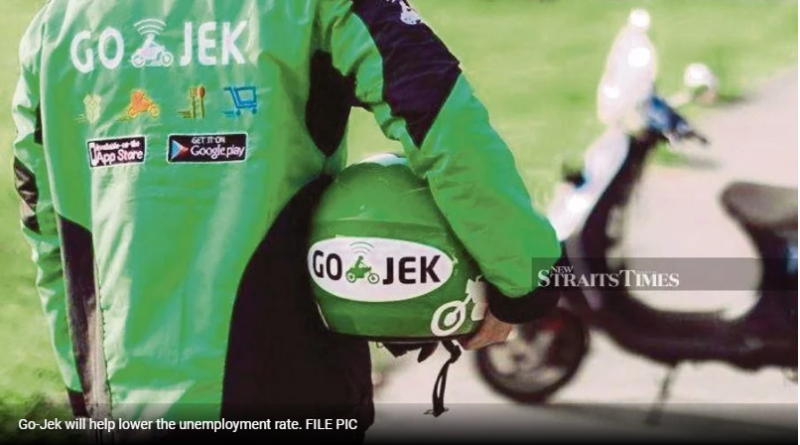Go-Jek will benefit the people by creating jobs
A developed country is not a place where the poor have cars, it is where the rich use public transport.
Although Malaysia is not far from being a developed country, the least we can do as citizens is to push ourselves to use existing public infrastructure.
Before articulating whether Go-Jek is feasible to be implemented in Malaysia, it would be wise if we understand better about the current dilemma of our transportation system rather than discriminate against Go-Jek.
We undeniably possess vast transportation modes such as MRT, LRT, Monorail and KTM trains compared to some neighbouring countries.
However, the government should rectify the poor connectivity from home to the transport hubs, as well as the lack of integrated pedestrian walkways to the stations.
Plus, the MRT First Line has yet to meet the daily ridership target and this distinctly shows that Malaysians are unwilling to change their commuting habits and utilise public transport.
We should be happy that Go-Jek is making its way here, simply because it makes it convenient to access our public transportation hubs where commuting is already an issue.
Economically, the bike ride-hailing company contributed about RM13 billion (IDR43 trillion) to the Indonesian economy in 2018 based on a recent study by Universitas Indonesia. Understandably, this is a huge milestone accomplished by a start-up company, recently ranked 11th in Fortune’s Change The World list of 2019, of companies that have changed the world.
A majority of Go-Jek partners and drivers enjoyed the benefits of a work-life balance through flexible work hours, which also provided them with the financial ability to support their families. Furthermore, Go-Jek improved Indonesia’s small and medium scale enterprises sector by introducing GoCar, GoFood and GoPay.
Imagine how our local vendors or companies which partner with Go-Jek will exponentially generate their revenues at the same time, lowering our unemployment rate with loads of job opportunities. This mechanism has been successfully implemented by the Singaporeans, who replicated the Go-Jek services in Indonesia.
However, the downside of Go-Jek is that women passengers may become prone to sexual harrassment as only one seat on the bike is available, unlike Uber or Grab. Riding alone with the male rider may also make her more vulnerable to crime, especially at night.
Therefore, Go-Jek needs to introduce a model which prioritises women riders picking up women customers to reduce potentially dangerous situations. As suggested by our Minister of Youth and Sports Syed Saddiq Syed Abdul Rahman, precautions must be taken on passenger safety.
Since Malaysia is ranked third highest in the number of road deaths in Asian countries, it is without doubt that allowing more Gojek bikes will increase the numbers. Unfortunately, the government has been unable to lower the road deaths over the past decades.
From the journal The Future of Mobility 3.0, Kuala Lumpur is behind Jakarta in terms of tackling mobility challenges which arose due to population growth and congestion in the city. The
United Nation has projected that 70 per cent of the world’s population will live in urban areas by 2050.
Thus, the Malaysian government and the private sector need to find ways to create safer, sustainable and reliable transportation modes for Malaysians. Go-Jek provides numerous advantages benefiting their partners and millions of people.
Source: NST

